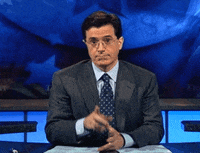Catholics around the world — reacting to waves of media coverage — are still debating the decision by Pope Francis to allow priests to bless same-sex couples.
Many rejoiced in seeing bold headlines about the decision, while others across the doctrinal spectrum argued it could sow confusion and exacerbate tensions further between progressives and conservatives within the church.
The 5,000-word document — known as Fiducia supplicans and issued by the Vatican’s Doctrine of the Faith on Monday — elaborated on a letter the pontiff sent to cardinals that was published in October. In that letter, Pope Francis had said such blessings could be offered under some circumstances if they didn’t confuse the ritual with the sacrament of marriage.
This new declaration repeated those conditions, but also reaffirmed that marriage is a lifelong sacrament between a man and a woman. The Vatican said the blessing of these “irregular” situations — which also includes divorced Catholics — must be non-liturgical in nature and cannot be done at the same time as a civil union.
As alway, intense mainstream-media coverage played a major role in the firestorm surrounding this Vatican document, with many journalists struggling to define the difference between “blessings” for same-sex couples and rites recognizing the validity of those unions.
The confusion shaped the debates. In the end, the document “will undoubtedly be considered yet another black mark on the memory of this pontificate, according to Steven O’Reilly, who runs a blog called Roma Locuta Est.
“Now, in an effort to defend this document, the Francisapologists or ‘popesplainers‘ will no doubt rely on the fact that the new Vatican document does say that the ‘form’ of the blessings for individuals in same sex relationships ‘should not be fixed ritually by ecclesial authorities to avoid producing confusion with the blessing proper to the sacrament of marriage,’ ” he said. “So, the document in its first few sections appears to be consistent with past teaching.”










